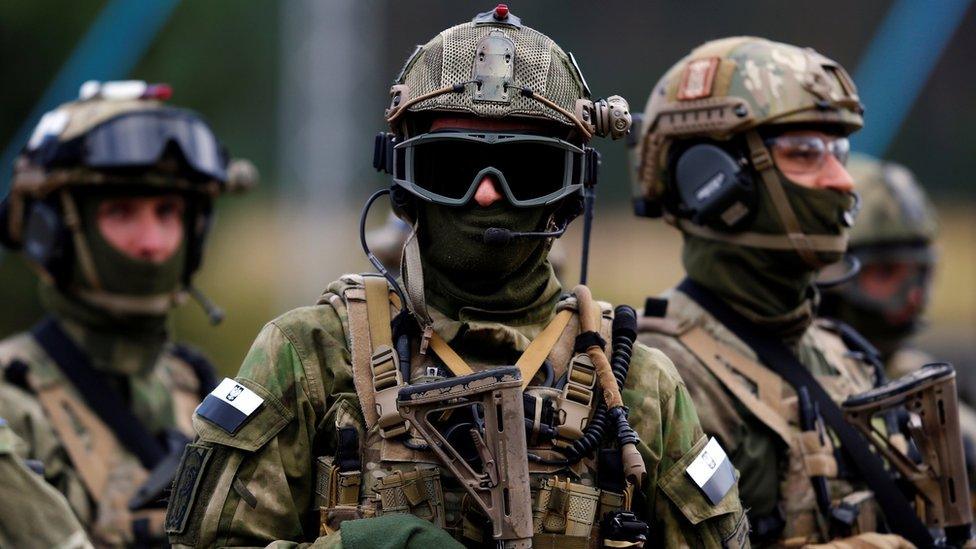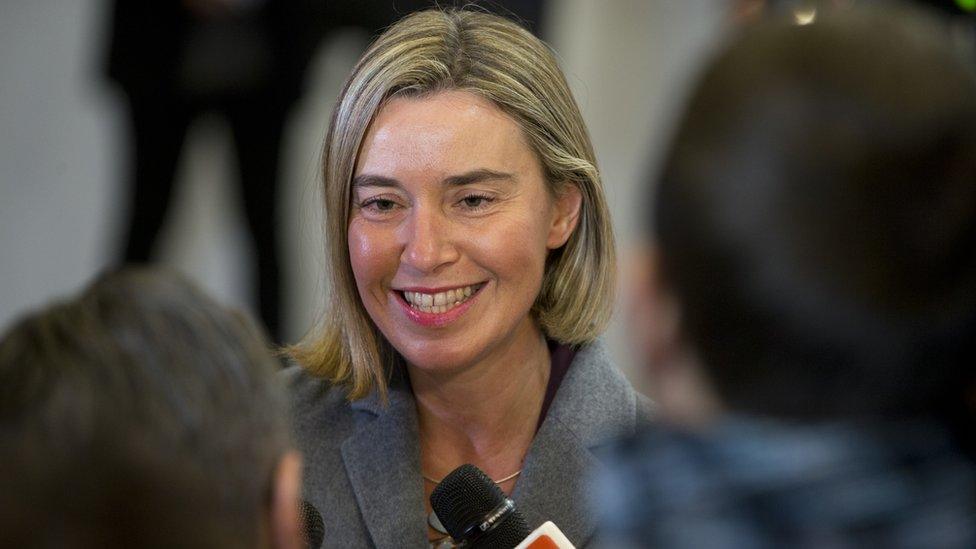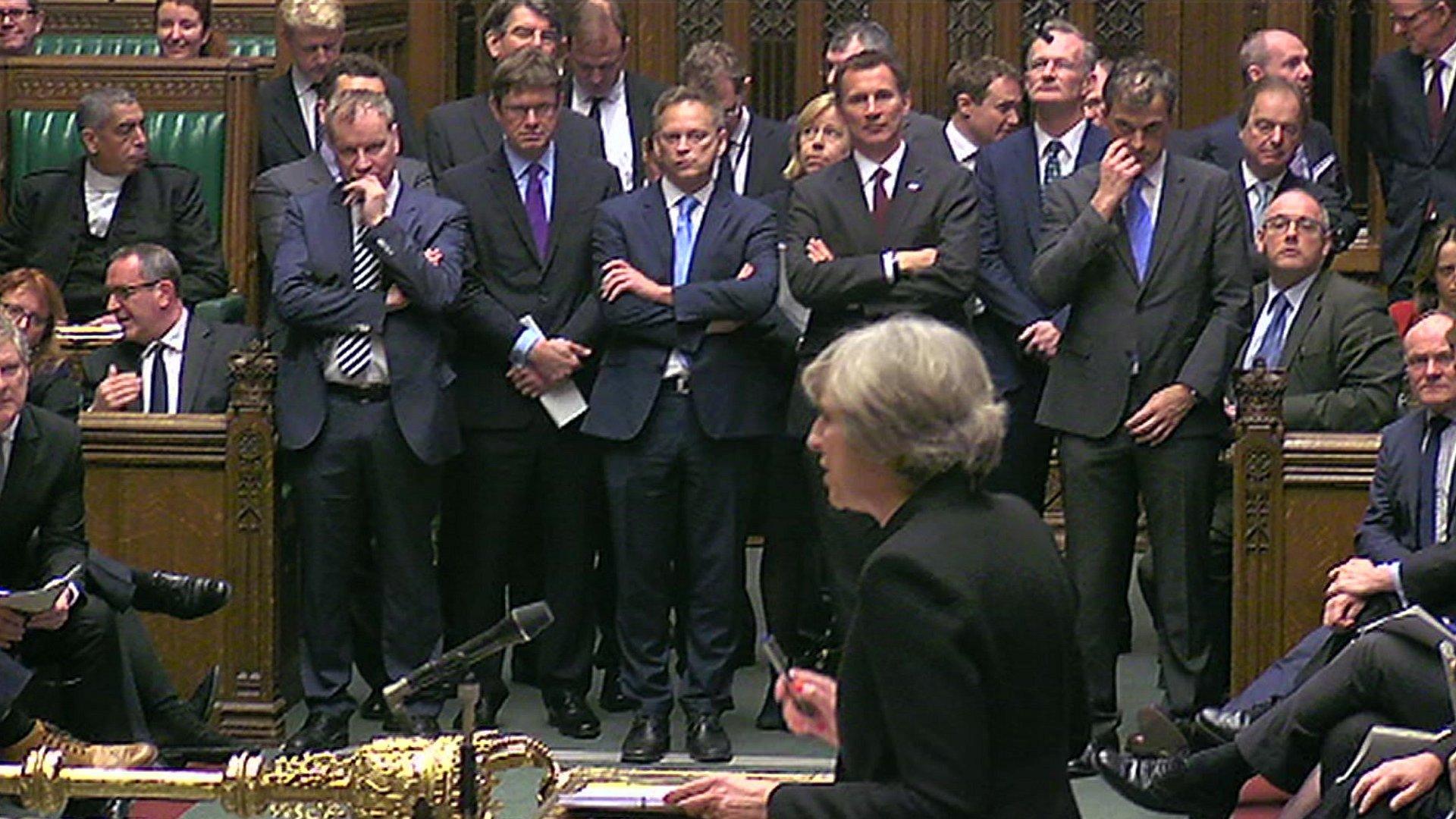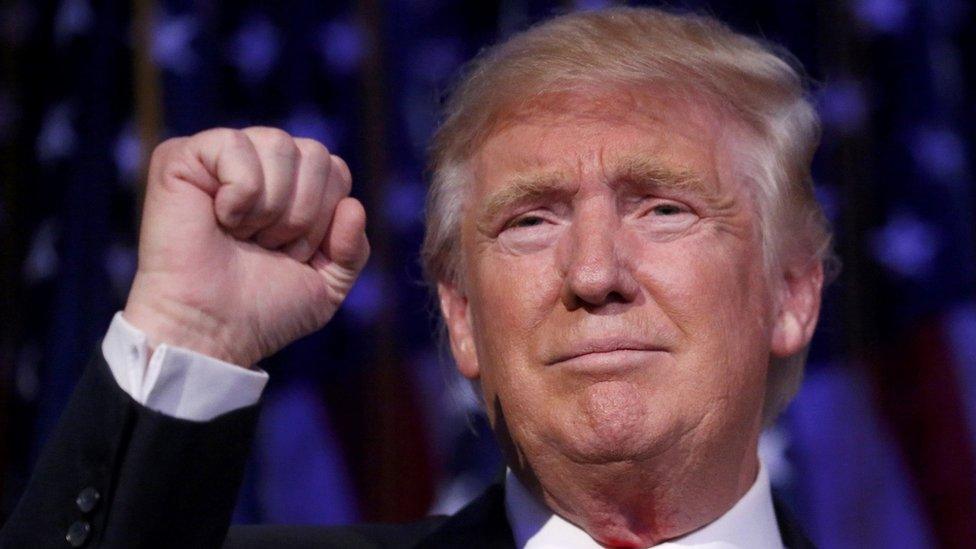Trump election: Europe looks to its defences
- Published

Eastern European and Baltic states feel particularly exposed to Russia
Walk the normally staid, greying corridors of EU power in Brussels at the moment and you sense an unaccustomed buzz, a nervousness; there's a whiff of almost frenzied expectation.
Change is in the air: exciting and emboldening for some, frightening for others.
Imagine the EU in a bowling alley. Well, frankly, its pillars of stability have been falling like ninepins.
Brexit, mass migrant arrivals, Russian activity in Ukraine, cross-border Islamist terror (with the Paris attacks anniversary at the weekend), and now the election of Donald Trump as US president, with all the implication that may have for European politics, trade, security and defence.
The UK foreign secretary may dismiss it as a "whinge-o-rama" and Hungary's government may mutter about "exaggerated panic", but EU leaders - and their foreign ministers meeting in Brussels on Monday - have a list of clear-cut concerns about President-elect Trump.
Boris Johnson: There’s a lot to be positive about on Donald Trump
More on what Trump means for Europe:
Mr Trump's America-first attitude, his comments appearing to question Nato's founding all-for-one-and-one-for-all clause and his apparent admiration for Russia's Vladimir Putin have Europeans worried about defence and security, about Syria, about the Iran nuclear deal and about Europe itself.
The Russia-fearing Eastern and Baltic countries feel particularly exposed.
The Putin effect
Yes, Donald Trump's commitment to Nato worries them but they're also apprehensive about changes in political tone towards Russia - not just in the US but here in Europe too.
Resurgent anti-establishment, populist parties across the continent - in France, Italy, Austria and beyond - applaud Mr Trump and have established links with Russia.
Marine Le Pen said the Trump win was "an additional stone in the building of a new world"
Far-right French presidential hopeful Marine Le Pen, well-known for relations with Moscow, said she had accepted an invitation to work with Mr Trump. In Italy, the leader of the nationalist Northern League party told a crowd waving Russian and American flags that he was Italy's Trump.
Now Russia-friendly candidates have won elections in Bulgaria and Moldova. And a party close to Moscow is making a power play in Estonia.
EU Foreign Policy Chief Federica Mogherini is clearly worried.
Once again, EU talk of a European Defence Union looms large.
It's hardly a new idea - big powers France, Germany, Italy and Spain pushed loudly for it following the UK's Brexit vote in June - but now there's a sense of increased urgency.
This is not about building an EU army, insist advocates (though some Europeans are in favour), but rather about sharing defence capabilities and moving towards increased self-reliance in an insecure world.

The EU's foreign policy chief has said Europe's security and defence must become more credible and effective
The EU already has its own rapid reaction forces. One argument is that it should deploy them more assertively and effectively.
Until now, the UK - one of only two significant military powers in the EU - consistently blocked any moves towards a common EU defence body but it has voted to leave the bloc.
Still, to have a European defence union, you need unity amongst EU countries and there's little evidence of that amongst the fractious bunch of 28.
When big power Germany hastily convened an EU foreign ministers' dinner in Brussels on Sunday night to discuss Donald Trump's victory, key players Britain and notably France didn't bother showing up.
Nato ex-Secretary General Anders Fogh Rasmussen dismisses any talk of the EU going down the defence path alone as "a paper tiger".
And as much as Ms Mogherini asserts that the EU should be able to defend itself "with the full potential of a superpower", the bloc will continue to rely on the US and on Nato in particular.
Not that long ago in Europe, mainstream politicians were wondering out loud about whether Nato was an out-dated organisation - hugely important in the shadow of World War Two but less significant in the 21st Century.
But increasingly in the face of its multitude of crises - masses of migrants and asylum-seekers braving the Mediterranean to reach Europe, European cities under attack from cross-border Islamist terror and Russia flexing its muscles in the East - the EU has become increasingly reliant on Nato once again.
Political memory is short.
- Published13 November 2016

- Published14 November 2016
